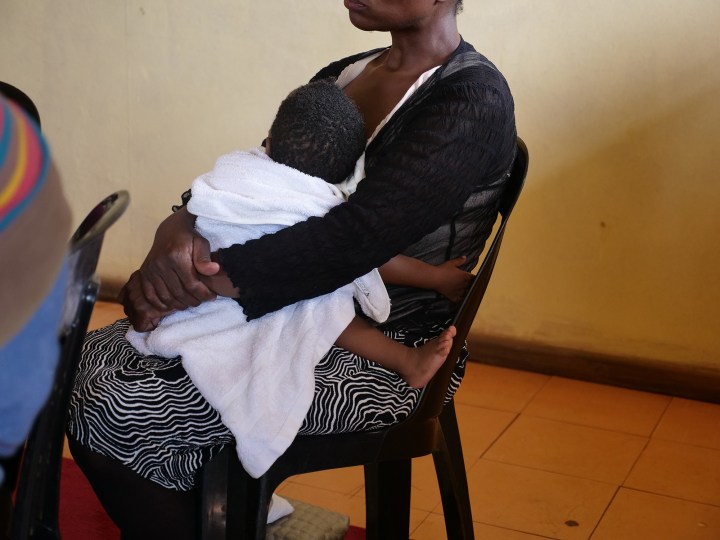Maverick Citizen Webinar
Your body, your choice? Sexual and reproductive human rights get sidelined during the pandemic

During lockdown, some facilities saw safe termination of pregnancy as an elective procedure and, as a means of preventing congestion in hospitals, cancelled their pregnancy termination services.
The right to maintain personal bodily autonomy; the right to have children or not to have children; the right to parent your children in safe and sustainable communities. This is reproductive justice – a term first conceptualised by SisterSong Women of Colour Reproductive Justice Collective in 1994. The concept has since been adopted by countless civil society organisations, fast becoming a global movement.
On 23 July, South African civil society groups held an open dialogue and discussion on the impact of Covid-19 on sex workers, clinical providers of contraception and abortion services, and LGBTQIA+ health services.
“I do not think any of us, wherever we are in the world, could have anticipated the impact that Covid-19 would have on the people that we serve,” says Sharon Cox from the Triangle Project, a human rights organisation that provides direct services to LGBTQIA+ people in the form of psychosocial and health services.
Cox says the organisation’s greatest demand has been on nutrition and therapeutic services, especially from people who, under lockdown, lived with family members who were either homophobic or transphobic.
Cox says that they also saw several cases, where they had to help victims of severe gender-based violence (GBV):
“We had to work with the GBV Command Centre [GBVCC] to help place [victims] in emergency accommodation.”
The constituents and people that the Triangle Project serves are spread across the province. Cox says because of the pandemic, the organisation had to figure out how to continue to provide counselling and medical and nutritional services throughout the current health crisis.
“What we needed was to bring on more people, people like those we have trained as community care workers, to provide palliative care.
Cox and Dudu Dlamini from Sex Workers Education and Advocacy Taskforce (SWEAT) explain that conventional means of support, both medical and personal, which are available to heterosexual persons, are often not available to the LGBTQIA+ community or to sex workers, and that providing these services has been made even more difficult by the Covid-19 pandemic.
“Those conventional structures of support that would be there in a hurry in a very heteronormative society are not in existence often for LGBTQIA+ people,” says Cox.
SWEAT envisions a South Africa where people who choose to sell sex can enjoy freedom, rights, and human dignity. Dlamini says sex workers are not coping well during the pandemic and they have been marginalised.
“They [sex workers] make a living to put food on the table. They have a need and a right to services and support without threat or fear of resistance.”
Dlamini adds that some sex workers have been unable to access medication and pay for transport to healthcare facilities, with the organisation’s Mothers for the Future (M4F) programme hit especially hard:
“The programme supports mothers who do sex work by providing a safe place to meet, organise, and access support.”
M4F addresses several needs which include health needs, legal issues, lack of social support, and lack of emotional support. However, social distancing and a decline in financial support have hindered the organisation’s efforts.
Poor communication and shocking consequences
Judiac Ranape, a professional nurse trainer at the Western Cape Department of Health and an abortion provider, says this has been the “worst time” of her nursing career.
“Because of Covid-19 we practically had to stop all our programmes with regards to sexual reproductive health services and abortion services.”
Ranape says the message that people should stay at home was the most damaging because “women were not accessing sexual reproductive health services because it was said that you can only access the healthcare when you are feeling sick.
“This was communicated in such a way that women were actually turned away at some facilities,” says Ranape.
Kgaladi Mphahlele, a clinical provider from Doctors Without Borders (MSF Southern Africa), says that the first challenge he came across during lockdown was that some facilities saw safe termination of pregnancy as an elective procedure and, as a means of preventing congestion in hospitals, cancelled their pregnancy termination services.
Mphahlele says MSF has had to go to those facilities and discuss, with management, the importance of access to safe abortion and operation care for the patients that they send to these facilities.
Mphahlele says that it has reached the point where they need to book patients according to priority. For example, if a woman in her second trimester goes into the clinic, her procedure will be prioritised first. If the pregnancy is still early, it will be delayed by several weeks.
Ranape says gender-based violence has been much worse since lockdown, to the point that she was recently asked by one of the facilities in her district to go in and sensitise and train the staff because of so many patients experiencing GBV.
“It was especially a shock because we realised that our care providers didn’t even know where to refer victims to. They didn’t even know of safe houses to send victims to,” says Ranape.
She says, in a way, she is “thankful to Covid-19” as it has highlighted a range 0f issues in our healthcare system that require urgent fixing. DM/MC
"Information pertaining to Covid-19, vaccines, how to control the spread of the virus and potential treatments is ever-changing. Under the South African Disaster Management Act Regulation 11(5)(c) it is prohibited to publish information through any medium with the intention to deceive people on government measures to address COVID-19. We are therefore disabling the comment section on this article in order to protect both the commenting member and ourselves from potential liability. Should you have additional information that you think we should know, please email [email protected]"





 Become an Insider
Become an Insider